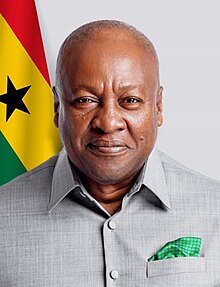Dear Mr. President,
I would like to take this opportunity to congratulate you on your second term in office as the President of the Republic of Ghana. Your resilience and dedication to national development have earned you another mandate, and I sincerely say, Niti zugu sung.
Mr. President, just three months into your four-year tenure, it is evident that you have started on a promising note. As a citizen, I am particularly impressed by your decision to reduce the Independence Day celebration expenses from a staggering GHC 15 million to GHC 1.5 million. This prudent financial management will significantly contribute to the country’s economic growth, and for that, I express my heartfelt gratitude.
Your Excellency, I am writing this letter to draw your attention to a pressing issue concerning the local textile industry, especially in this month of March, which has been declared the “Month of Ghana.” The initiative to encourage Ghanaians to patronize locally made products, such as smocks, Kente, and tie-and-dye fabrics, is commendable. However, a closer examination of the local textile industry reveals significant challenges that hinder its growth and impact on the economy.
A few days ago, I visited the National Cultural Centre to purchase a smock and some tie-and-dye fabric. To my surprise, the prices were exorbitantly high, and there was no tie-and-dye available in any of the shops. When I inquired about the high prices, the shopkeepers revealed that the threads used for weaving are imported from China, thereby increasing production costs. They further stated that multiple appeals have been made to the government to establish a factory in Ghana for thread production, but their requests have yet to be addressed.
Additionally, I spoke with the Regional Director of the Centre, who highlighted the vital role the weaving and textile industry plays in providing employment, particularly for women, and in reducing rural-urban migration. He emphasized that if the government were to invest in the industry, Ghana could soon begin exporting locally made fabrics, boosting both employment and economic growth.
However, one of the major threats to the industry is the influx of Chinese businessmen who replicate our unique weaving patterns, mass-produce them at lower costs, and flood our markets with cheaper alternatives. This practice gradually undermines the local textile industry and increases Ghana’s dependence on foreign products.
Mr. President, with your vision of resetting Ghana’s economy, I humbly urge you to take concrete steps to address these challenges. Specifically, I suggest the following:
- Invest in the Local Weaving Industry – Direct the Minister of Trade and Industry to implement a three-year investment plan aimed at boosting the local textile sector, particularly in the northern regions.
- Provide Affordable Loans – Make accessible low-interest loans available to local textile producers to enhance production capacity and competitiveness.
- Reduce Importation of Foreign Threads and Textiles – Implement policies to limit the importation of foreign threads and fabrics, ensuring that local weavers have a thriving market and a sustainable industry.
By prioritizing the development of Ghana’s textile industry, we can create more jobs, particularly for the youth and women—who form about 80% of the workforce in this sector—empower local businesses, and strengthen our economy.
Thank you for your time and consideration. I trust that your administration will take the necessary actions to support this vital industry.
Yours sincerely,
Alidu Isaiah
Reporter, Zaa Multimedia, Tamale


